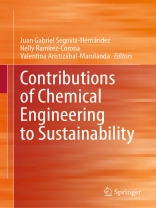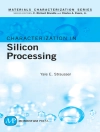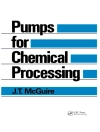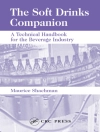This book discusses the recent advancements in chemical engineering and their role in achieving the United Nations’ 2030 Agenda and Sustainable Development Goals (SDGs). Addressing these goals involves tackling intricate and interdisciplinary challenges.
Chemical engineers have been diligently addressing a diverse array of issues across academia, society, and industry, with the aim of positively impacting these goals.
The book offers essential insights and detailed analyses for each SDG. It explores the challenges encountered within various applications and proposes solutions based on foundational engineering principles. The book’s content is tailored to professionals, students, and researchers across diverse fields, including engineering, environmental science, and biotechnology.
Содержание
Introduction.- Chapter 1. Perspectives on Sustainable Processes in Chemical Engineering.- SECTION 1. SDG2, “ZERO HUNGER”.- Chapter 2. Microbial food safety through emerging technologies based on ultraviolet light for liquid food processing.- Chapter 3. Edible insects, a sustainable alternative for human feeding and food processing.- SECTION 2. SDG6, “CLEAN WATER AND SANITATION”.- Chapter 4. Advances in wastewater treatment technologies as enablers to reach Sustainable Development Goal 6.- Chapter 5. Microbial interactions for wastewater treatment focusing on microalgae-based systems.- SECTION 3. SDG 7, ‘AFFORDABLE AND CLEAN ENERGY’.- Chapter 6. Biorefineries based on rice residues as sustainable productive models.- Chapter 7. Performance investigation of solar stills for small-scale freshwater demand in rural communities in México: economic and environmental analysis.- Chapter 8. Influence of cocoa bean husk and coffee husk composition on bio-oil yield and Life Cycle Assessment in fast pyrolysis.- SECTION 4. SDG 9, ‘INDUSTRY, INNOVATION AND INFRASTRUCTURE’.- Chapter 9. Process safety and environmental protection for extractive distillation: A guide to the application of inherent risk and eco-indicator 99.- Chapter 10. Process intensification applied to biojet production through ATJ process.- Chapter 11. Bio-jetfuel an alternative to achieve a sustainable aviation industry. Case study of Mexico considering economic, environmental and social aspects.- SECTION 5. SDG 13, ‘CLIMATE ACTION’.- Chapter 12. Chemical engineering to aid an effective shift towards sustainable low-carbon energy systems: A BECCS case study.- Chapter 13. Analysis of carbon dioxide integration as raw material in existing biomass upgrading processes for the sustainable production of high value-added products.- Chapter 14. Socio-economic implications of deploying sustainable phosphorus management systems.
Об авторе
Juan Gabriel Segovia-Hernandez has been instrumental in developing systematic methodologies for establishing comprehensive and optimized sustainable and green processes across various commodity production. He has successfully applied these methodologies to the realm of biofuels and Bio-Based Building Blocks.
Nelly Ramírez Corona’s research is centered around process engineering, food processing, and engineering education. Her work includes collaborative projects focused on technological innovation across different industries.
Valentina Aristizábal Marulanda brings extensive expertise in biorefinery design and analysis, as well as proficiency in process simulation, modeling, and experimentation.












